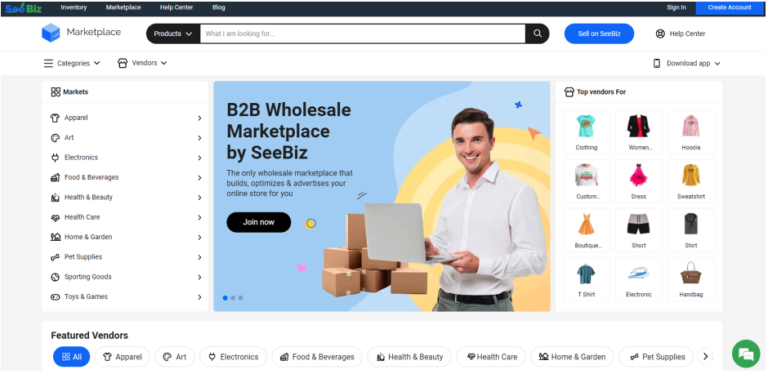The Ultimate Guide to Successful Digital Marketing Strategies
In today’s rapidly evolving business landscape, digital marketing has evolved from a niche practice into a fundamental component of successful business strategy. Companies of all sizes are increasingly relying on digital platforms to reach their audiences and generate sales. This guide delves into effective digital marketing strategies that can help businesses thrive, regardless of their industry.
Understanding Digital Marketing
Digital marketing encompasses a variety of online marketing efforts, from social media advertising to search engine optimization (SEO) and email marketing. The primary goal is to connect with potential customers on digital platforms where they are most active. As per a report by HubSpot, 61% of marketers say improving SEO and growing their organic presence is their top inbound marketing priority.
Establishing Clear Goals
Successful digital marketing begins with well-defined goals. These objectives guide your strategies and allow you to measure performance accurately. For instance, goals may include increasing brand awareness, generating leads, driving website traffic, or boosting sales and conversions.
SMART (Specific, Measurable, Achievable, Relevant, Time-bound) criteria are essential for crafting these goals. By ensuring that objectives meet these criteria, marketers can align their campaigns with overall business priorities and assess their impact effectively.
Building a User-Friendly Website
A well-structured, user-friendly website is the backbone of any digital marketing strategy. It serves not only as an information hub but also as a key conversion tool. Elements such as load time, mobile optimization, and intuitive navigation play crucial roles in user engagement. Investments in web design and marketing can yield significant returns. According to Google, 53% of mobile users leave a page that takes longer than three seconds to load. This statistic highlights the importance of speed and usability in retaining potential customers’ interest.
Leveraging Search Engine Optimization (SEO)
SEO is a critical component of digital marketing that focuses on improving your website’s visibility in search engine results. By optimizing your site for targeted keywords, you can attract organic traffic and drive qualified leads.
Incorporating on-page SEO tactics such as meta tags, link optimization, and quality content significantly impacts ranking. A study by Backlinko showed that the top result on Google has an average click-through rate of 31.7%, illustrating just how essential SEO can be for success.
Utilizing Content Marketing
Content marketing involves creating and distributing valuable, relevant content to attract a clearly defined audience. Over time, this builds relationships, boosts brand recognition, and fosters loyalty.
Different content formats, including blogs, videos, infographics, and podcasts, cater to varied audience preferences. A report by Content Marketing Institute indicates that businesses that prioritize content marketing experience 6 times higher conversion rates than those that do not.
Harnessing the Power of Social Media
Social media platforms provide businesses with direct access to consumers, allowing for real-time engagement and feedback. Establishing a presence on platforms like Facebook, Instagram, Twitter, and LinkedIn enables brands to share content, promote offers, and foster community interaction.
As of 2023, approximately 4.9 billion people are active on social media worldwide. This illustrates the vast potential reach businesses can tap into. Regularly analyzing social media metrics also allows marketers to refine their approaches based on consumer behavior and engagement levels.
Creating Engaging Social Media Campaigns
Successful social media campaigns go beyond just posting content. They require strategic planning and creativity. Engaging content, promotional giveaways, and interactive posts can significantly increase user involvement.
Moreover, incorporating visuals like images and videos can raise engagement rates. According to a study by BuzzSumo, posts with images receive 650% greater engagement than text-only posts.
A Direct Approach
Email marketing remains one of the most effective digital marketing strategies. With a direct line to customers, companies can promote offers, share news, and nurture leads effectively.
Utilizing techniques like segmentation and personalization boosts open rates and conversions. In fact, the Data & Marketing Association reported that segmented email campaigns perform 14% better than non-segmented campaigns. It’s crucial to continually test and refine email strategies for maximum impact.
Pay-Per-Click Advertising
Pay-per-click (PPC) advertising enables businesses to drive traffic quickly by placing ads on search engine results pages or social media. This model allows you to only pay when a user clicks on your ad, which can be an effective way to generate leads in highly competitive sectors.
Google Ads and Facebook Ads are the two most widely used platforms for PPC. Campaigns can be optimized based on data analytics, refining targeting to better reach potential customers. This data-driven approach significantly improves ROI.
Measuring Success
Analytics provide essential insights into the performance of your digital marketing efforts. Tools like Google Analytics offer data on website traffic, user behavior, and conversion rates.
Tracking these metrics allows marketers to identify what works, what doesn’t, and how to optimize future campaigns. Regularly revisiting analytics played a key role in 36% of marketers finding their digital marketing efforts to be effective, according to a HubSpot survey.
Adjusting Tactics as Needed
The digital landscape is constantly changing, requiring marketers to be flexible and adaptive. Assessing performance analytics regularly enables businesses to pivot strategies as necessary. Whether that means reallocating budget, changing targeting parameters, or exploring new channels, being agile is essential for sustained success.
Staying Updated on Industry Trends
Staying informed about the latest trends in digital marketing can give your business a competitive edge. Subscribe to industry blogs, attend webinars, and participate in professional networks to stay in the loop. Being aware of emerging platforms, technologies such as AI in marketing, and consumer behavior shifts is vital.
Moreover, connecting with other professionals can inspire new ideas and drive innovative strategies. A proactive approach will keep your marketing efforts relevant and effective in an ever-evolving market.
Investing in Ongoing Education and Training
The digital marketing landscape is dynamic, making continuous learning essential. Workshops, online courses, and certification programs can enhance your team’s skills and keep them up-to-date on the latest tools and techniques.
By nurturing a culture of learning within your organization, you’ll ensure that your team is equipped to tackle challenges and leverage new opportunities in digital marketing.
The Future of Digital Marketing
As technology continues to advance, digital marketing will evolve accordingly. Trends such as increased personalization, voice search optimization, and augmented reality experiences are set to reshape the industry.
Proactively adopting new technologies will allow businesses to stay ahead of the curve and create more dynamic and engaging customer experiences. In an era where consumers demand innovative interactions, effective digital marketing strategies become critical to sustaining competitive advantage.
Successful digital marketing strategies require a multifaceted approach, from building a strong online presence to leveraging analytics for continuous improvement. By focusing on goals, user experience, and ongoing education, businesses can position themselves for digital success in an ever-changing environment.







